

The Impact of Feedback Culture on Organizational Growth in Management
Exploring the Feedback Culture in Management
In today's competitive business environment, the relationship between organizational growth and a well-established feedback culture has gained significant attention. A recent survey conducted by CBASE, a leading HR survey cloud service provider, revealed intriguing insights into how management sees the influence of feedback mechanisms on workplace dynamics and performance.
Survey Overview
CBASE, located in Shinjuku, Tokyo, recently released the results of its fourth survey titled "The Reality of Workplace Creation in Management,” which involved responses from 264 management professionals. The overarching mission of the company is "to update every individual, organization, and society through feedback and dialogue." This survey sought to gauge the perceptions of management regarding the importance of a feedback culture within their organizations.
Key Findings
According to the results, over 65% of managers affirmed that fostering a feedback culture significantly affects their company’s competitiveness and performance. This indicates a large consensus among leaders that mutual feedback among supervisors, colleagues, and subordinates contributes positively to both individual and organizational growth. Furthermore, around 65% of those surveyed believe that such a culture plays a crucial role in enhancing the overall work environment.
However, despite this acknowledgment, the actual implementation of meaningful feedback mechanisms appears limited. Approximately 30% of respondents admitted they had not taken particular steps to encourage feedback within their teams, indicating a gap between understanding the value and taking action.
Detailed Insights
Influence on Business Competitiveness
The survey posed key questions about the perceived influence of feedback culture on business competitiveness. About 13.3% of the managers felt that feedback culture would have a very strong impact, while 51.1% believed it would have a moderate impact, leading to a cumulative affirmation of nearly 65% acknowledging its importance. Conversely, less than 5% of the respondents minimized its significance, highlighting a strong belief in the positive correlations.
Contribution to Workplace Improvement
When asked whether a reciprocal feedback culture aids in improving the workplace environment, the results mirrored previous findings—with approximately 65% indicating a positive impact. Again, the negative responses accounted for less than 5%, reinforcing the notion that feedback is widely viewed as a vehicle for creating a better workplace.
Practices to Foster Feedback
Interestingly, when it comes to the actions taken to facilitate a feedback-friendly environment, only about 30% noted that they had implemented specific initiatives. The most common practice reported, employed by around 40% of respondents, was maintaining regular communication. Other strategies, such as implementing structured systems and using 360-degree feedback, were significantly less common, revealing a gap between recognition of importance and execution of relevant practices.
Role-Specific Insights
When observing practices by role, the preference for regular communication was a consistent choice across various management levels. Division heads reported a higher incidence of using specific initiatives like one-on-one meetings and 360-degree feedback processes, suggesting a more proactive approach in engaging their teams. In contrast, responses from other roles, particularly from lower management levels, indicated a tendency to refrain from utilizing established feedback mechanisms, presenting an opportunity for skill development in this area.
Conclusion
As the results indicate, there is a prevalent recognition among managers of the value of cultivating a feedback culture for sustained growth within organizations. However, significant room for improvement remains, particularly in the implementation of structured feedback processes. Companies are encouraged to explore and invest in creating an environment conducive to feedback to tap into its full potential.
For further details on the survey, please refer to the official CBASE website. Additionally, CBASE provides various HR survey services, including the popular CBASE 360° feedback system, to help organizations better assess their needs and improve their strategies for talent management and organizational development.
For insights and access to further data regarding their findings, download the latest reports from CBASE.
For inquiries about services offered by CBASE, visit their contact page here.
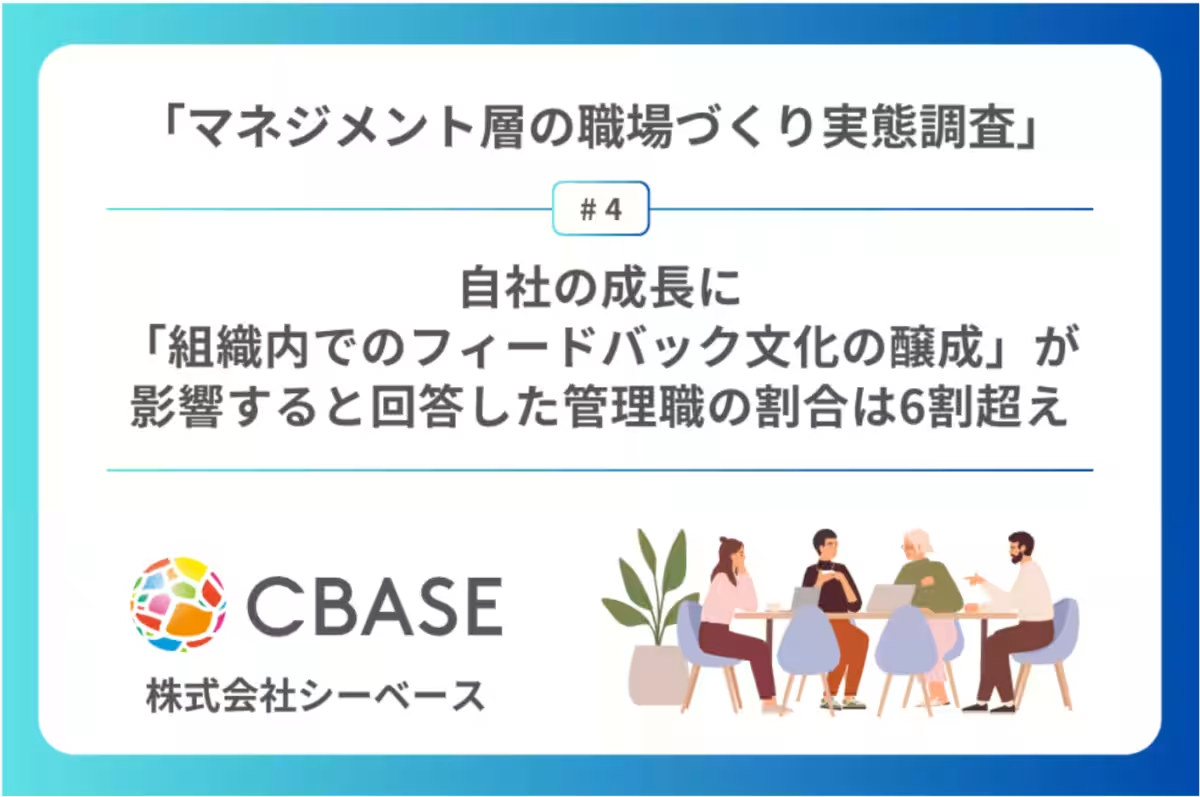
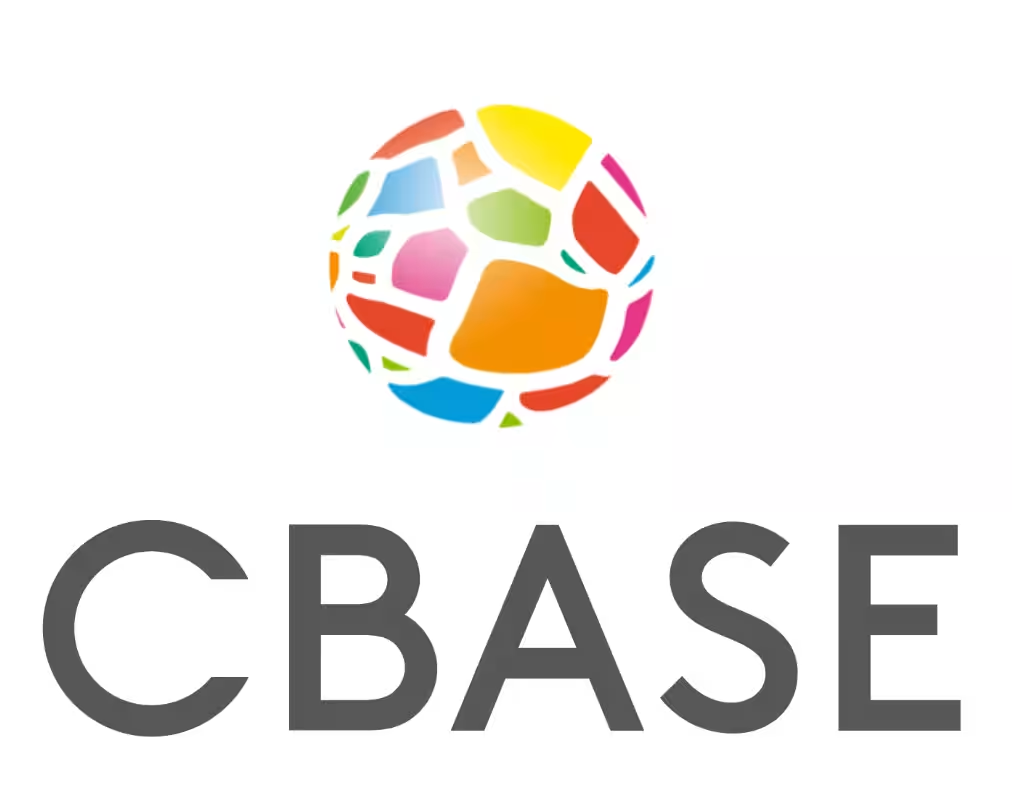
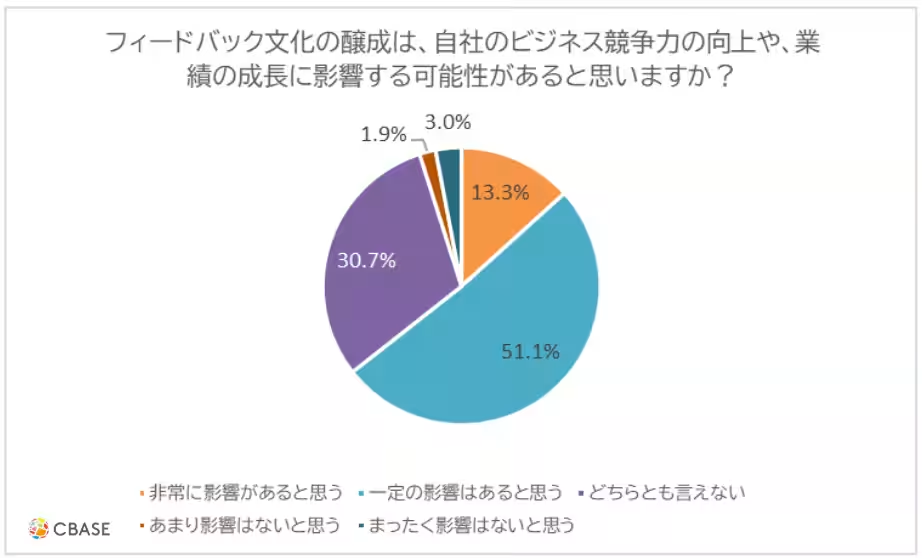
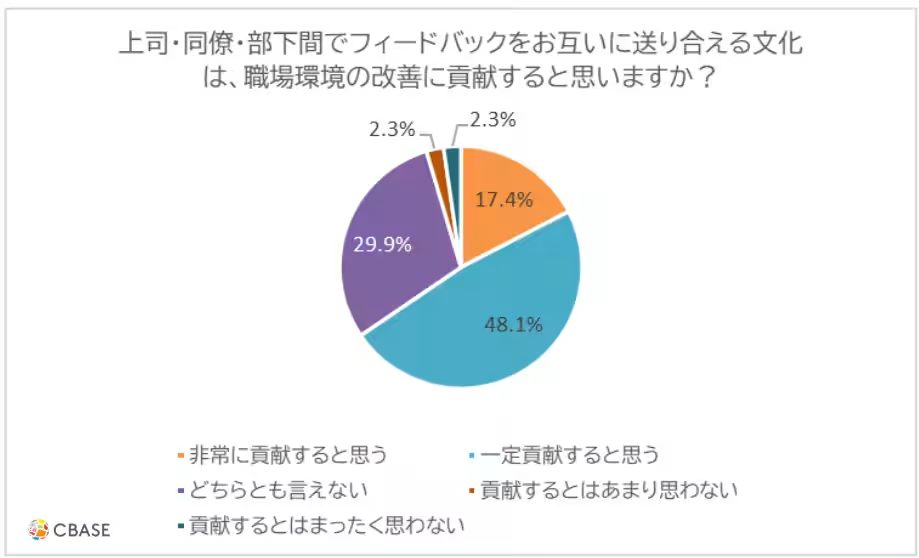
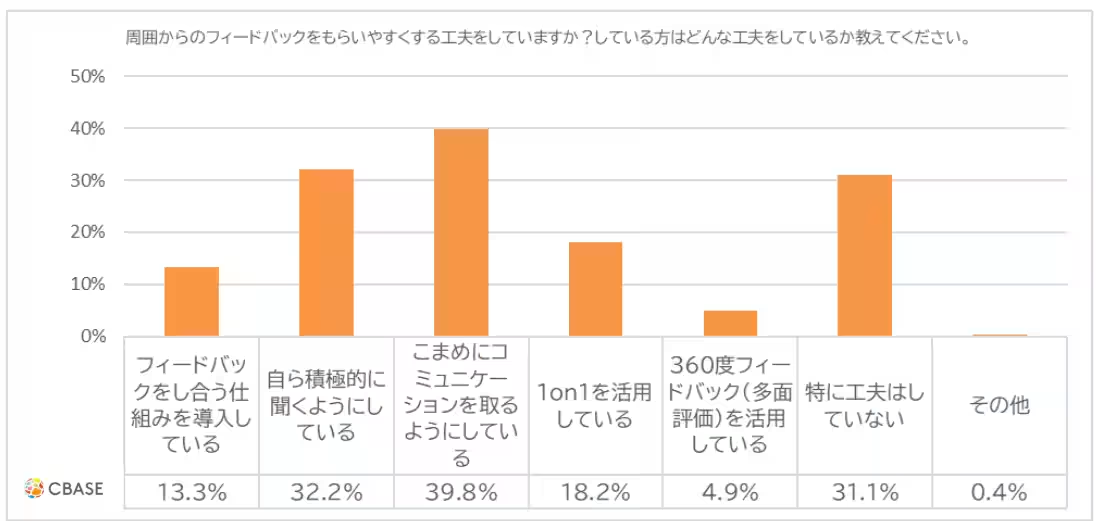

Topics People & Culture)










【About Using Articles】
You can freely use the title and article content by linking to the page where the article is posted.
※ Images cannot be used.
【About Links】
Links are free to use.